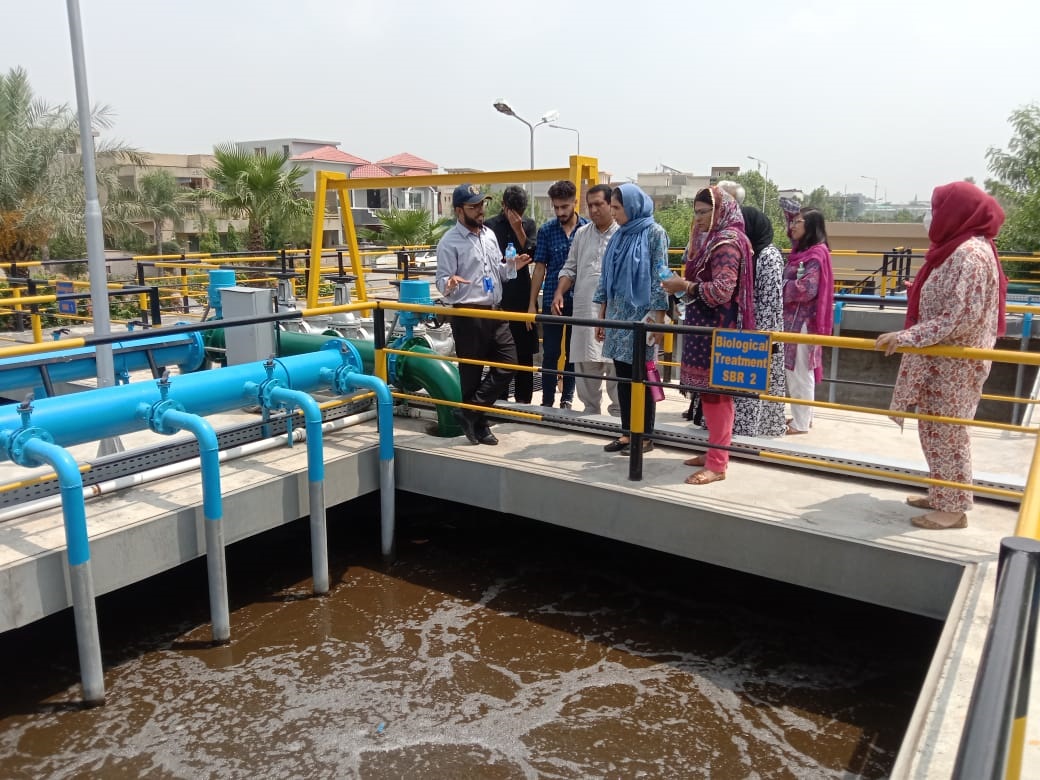- Advertisement -
ISLAMABAD, Aug 22 (APP):The Institute of Urbanism (IoU) on Tuesday organised field visits to different sustainable water solutions implemented in various areas of the federal capital to get ground based experience of innovations adopted to manage water as a natural resource facing pressure due to environmental degradation and urbanisation.
The Institute of Urbanism (IoU) and the School of Leadership Foundation (SoLF), in collaboration with the US Embassy, have taken a bold stride towards fostering sustainable urban growth through the launch of the Green Urban Development Project. This initiative’s inaugural phase is geared towards nurturing inventive concepts and endeavors among students from Quaid-e-Azam University. This innovative endeavor encompasses a blend of expert-led indoor sessions and insightful outdoor excursions to explore nature-based solutions.
By merging theoretical learning with practical encounters, the Green Urban Development School (GUDS) furnishes students with essential skills and firsthand insights, nurturing the seeds of their future entrepreneurial endeavors for an eco-friendlier future.
With the world grappling with pressing environmental challenges, water conservation has assumed paramount importance. Innovative solutions, particularly those rooted in nature, have risen as a beacon of hope. Techniques like underground water recharge wells, rainwater harvesting, soak water pits, rooftop water tanks, and water purification methods form vital pillars in the journey towards sustainable water management. Simultaneously, treating sewage water offers a promising chance to salvage significant water volumes, deployable for non-domestic use like horticulture. This dual-pronged strategy addresses water scarcity while reaffirming our commitment to a greener, more promising future.
GUDS participants embarked on three enlightening visits to gain a comprehensive understanding of sustainable water solutions.
In the first visit, participants explored Kachnar Park located in Sector I-8, witnessing the pilot artificial groundwater recharge well, a vital solution in the face of water scarcity and climate-induced flash floods. Addressing these challenges head-on, the Pakistan Council of Research in Water Resources (PCRWR) in Islamabad has initiated an artificial groundwater recharge well at Kachnar Park, Sector I-8. This project showcases the practical application of Nature-based Solutions (NbS) for sustainable groundwater management. The project’s innovative approach aims to reduce the impacts of flash floods, recharge groundwater, and alleviate water scarcity.
In the second visit to PCRWR Headquarters, the participants witnessed practical demonstrations of various rainwater harvesting techniques. During these explorations, the team discovered ingenious rainwater concepts that ingeniously blend nature with modern technology. Rooftop tanks emerged as pivotal water reservoirs atop urban buildings, capable of capturing more than 70% of rooftop rainwater. Soak water pits were unveiled, spotlighting their role in recharging aquifers and averting flooding, with the capacity to absorb around 30% of rainfall. The team also encountered groundwater recharge wells, stealthily replenishing underground water stores to the tune of approximately 40%. Amid these innovations, the efficacy of water filtration units stood out, purifying harvested rainwater to 90% cleanliness.
The GUDS team’s journey at PCRWR was more than theoretical; it was a hands-on dive into rainwater harvesting technology. Witnessing these solutions in action solidified their understanding of their significance in nurturing urban sustainability. This experience enriched their knowledge and kindled their commitment to fostering urban resilience through environmentally conscious practices.
The third visit took them to a state-of-the-art Sewerage Water Treatment Plant managed by a private housing society. The participants gained hands-on insights into the wastewater treatment process, which has a daily capacity of 600,000 gallons, where 150,000 to 200,000 gallons are used for watering plants within the housing society. An innovative aspect of this plant is the conversion of solid waste into organic fertilizer during the treatment process.
These visits not only provided participants with practical knowledge but also ignited their enthusiasm for contributing to urban resilience through tangible solutions. This blend of innovative projects and youth engagement is a testament to the commitment towards a more sustainable and water-conscious future.
- Advertisement -

